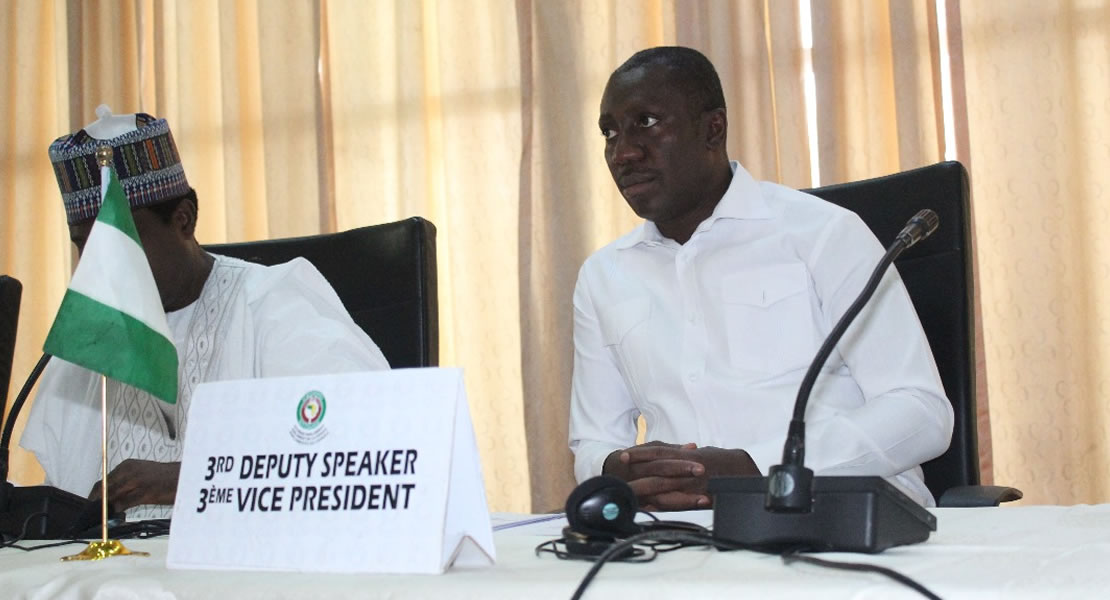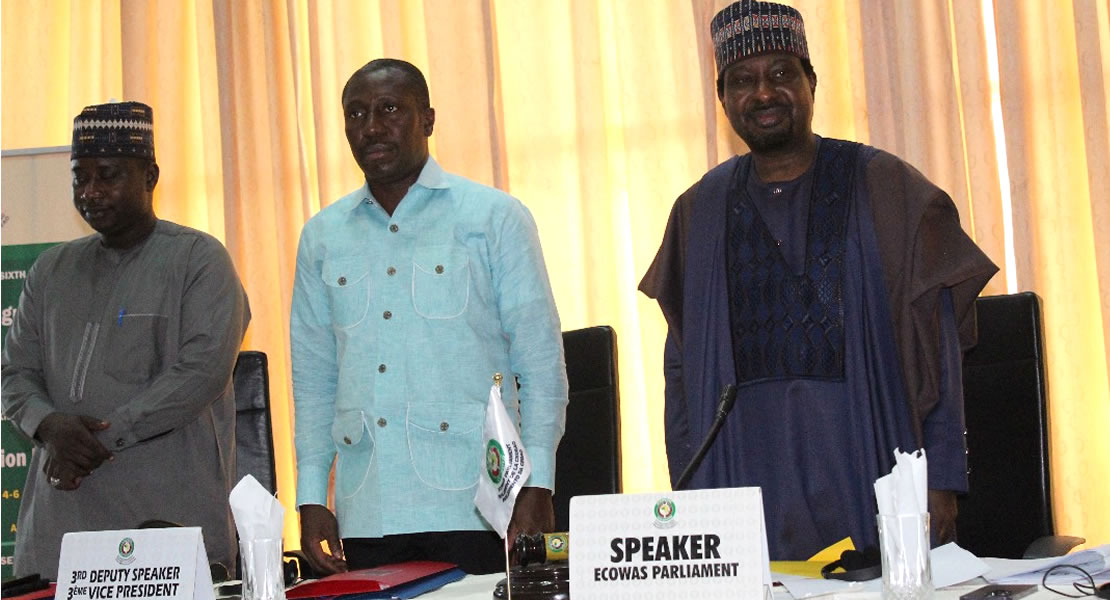
Third Deputy Speaker of the ECOWAS Parliament, Hon Alexander Afenyo-Markin has urged the sub-regional bloc to embrace radical reforms.
At the ongoing first Ordinary session of the 6th Parliament meeting in Abuja on July 13, 2024, the Majority Leader in Ghana’s Parliament noted critical shortcomings in the current structure of the ECOWAS Parliament and proposed sweeping changes to its role and effectiveness in driving regional integration.
The Economic Community of West African States (ECOWAS) Parliament, established as a forum for dialogue, consultation, and consensus for representatives of the people of West Africa, has long been viewed primarily as an advisory body. However, Afenyo-Markin’s speech on Saturday challenged this perception, advocating for a more empowered and influential parliamentary role within the regional bloc.
“Parliament was not just created as an organ of ECOWAS to play a mere advisory role, a deliberative chamber without powers,” Afenyo-Markin asserted, setting the tone for his reform agenda.
The Effutu MP said a more robust parliament would accelerate the achievement of ECOWAS’s goals and serve as a vital link between the organization and the citizens it represents.
The third Deputy Speaker, who presided over Saturday’s session of the 6th legislature of the regional bloc, identified two critical issues hampering ECOWAS’s effectiveness: a widespread lack of awareness about the organization’s activities and a concerning absence of synergy and collaboration among its various organs. These problems, he argued, have led to a disconnect between ECOWAS initiatives and the people they are meant to serve.
Drawing from his background in the private sector, Afenyo-Markin shared a personal revelation: “Until recently, I did not know a lot of the interventions that some development financial institutions established by ECOWAS have for the ordinary citizen of ECOWAS.”
“There are a lot of businesses in the agri-sector who are looking for chief funding, but how to tap the [ECOWAS Bank for Investment and Development (EBID) facility is a problem they don’t even know.”
The Deputy Speaker criticized the current organizational structure of ECOWAS, stating, “There is a commission sitting somewhere and parliament sitting somewhere. We are acting in silos.” He called for a more integrated approach, suggesting that the parliament could serve as “the best mouthpiece, the PR organ of the community body.”
Afenyo-Markin’s vision for reform extends to the parliament’s role in addressing political crises within the region. With several member states threatening to leave the bloc, he argued that “a strong parliament… would give meaning to the community’s aspiration” and could play a crucial role in maintaining regional stability.
Recounting a recent emergency meeting of ECOWAS heads of state, Afenyo-Markin noted that the Speaker of the ECOWAS Parliament was relegated to a back seat and denied the opportunity to address the gathering, unlike other commission heads and even a UN Special Envoy. This incident, he suggested, underscores the urgent need for “radical reforms… in terms of the protocols.”
As the meeting adjourned, Afenyo-Markin laid out the next steps for the parliament, announcing an upcoming interactive session with the ECOWAS Commission, focusing on the implementation of programs in economic affairs, agriculture, infrastructure, energy, and digitalization.
Ghanamps.com